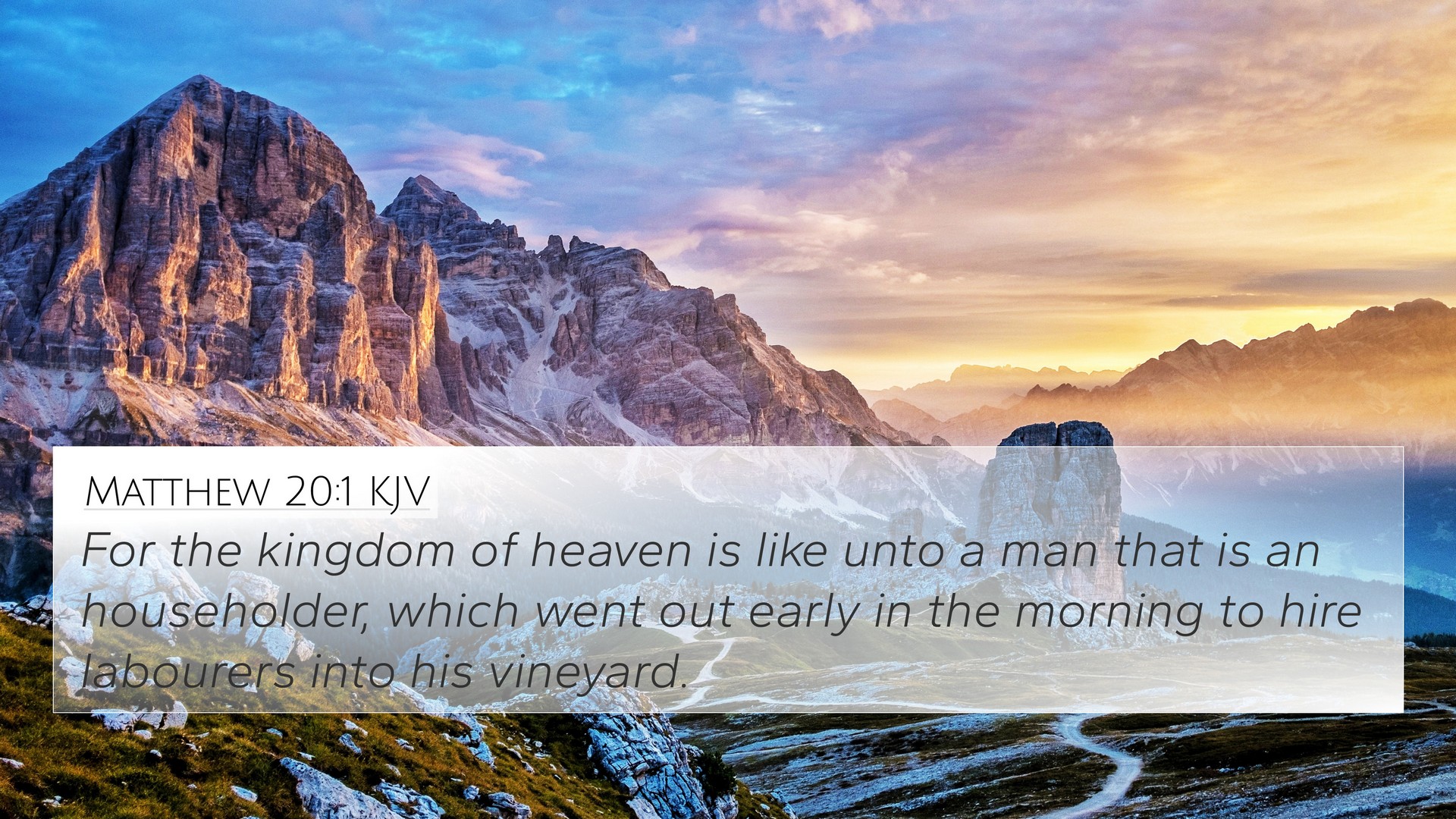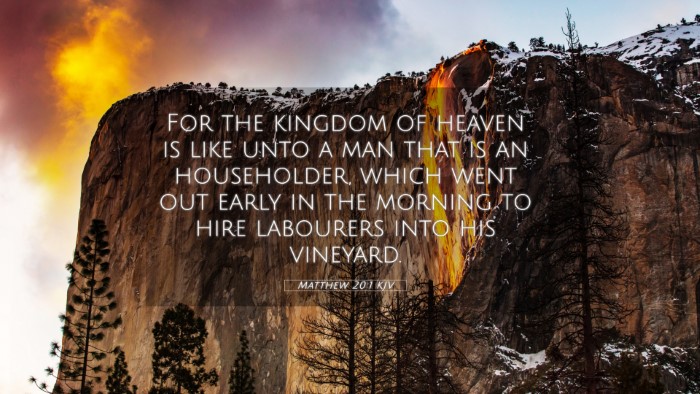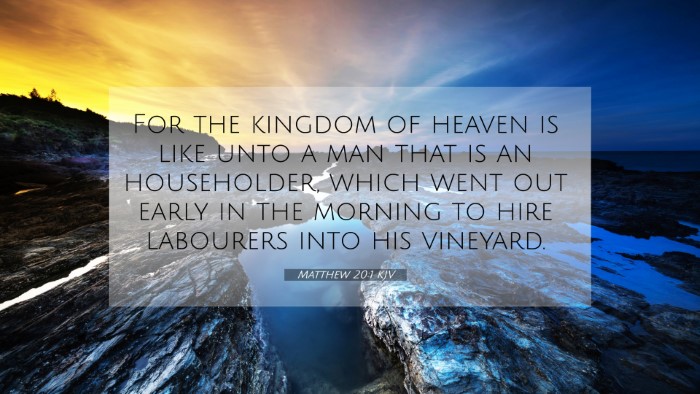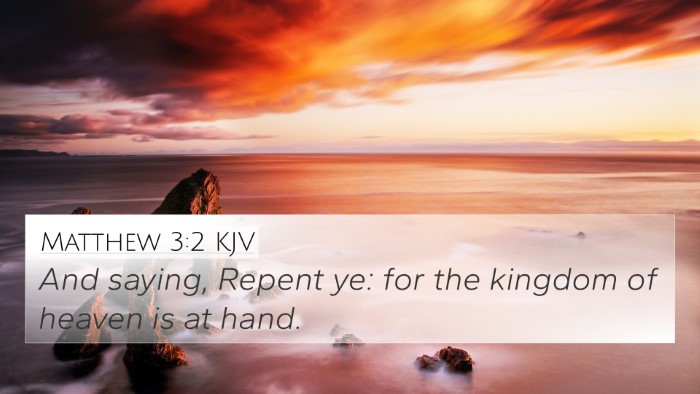This section features a detailed cross-reference designed to enrich your understanding of the Scriptures.
Below, you will find carefully selected verses that echo the themes and teachings related to Matthew 20:1 KJV. Click on any image to explore detailed analyses of related Bible verses and uncover deeper theological insights.
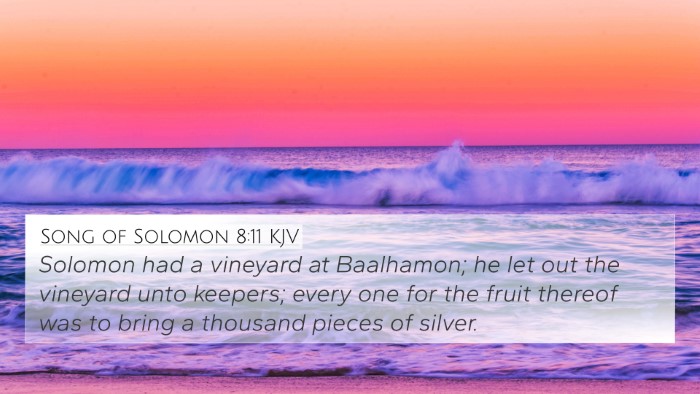 Song of Solomon 8:11 (KJV) »
Song of Solomon 8:11 (KJV) »
Solomon had a vineyard at Baalhamon; he let out the vineyard unto keepers; every one for the fruit thereof was to bring a thousand pieces of silver.
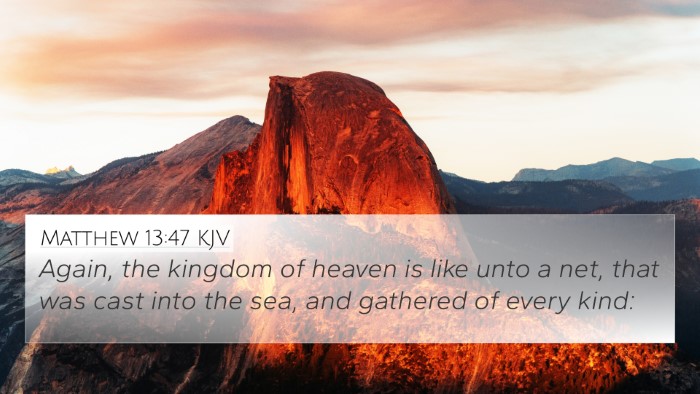 Matthew 13:47 (KJV) »
Matthew 13:47 (KJV) »
Again, the kingdom of heaven is like unto a net, that was cast into the sea, and gathered of every kind:
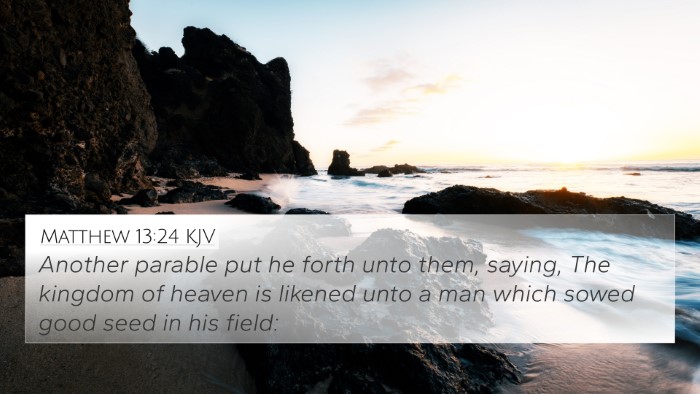 Matthew 13:24 (KJV) »
Matthew 13:24 (KJV) »
Another parable put he forth unto them, saying, The kingdom of heaven is likened unto a man which sowed good seed in his field:
 Hebrews 13:21 (KJV) »
Hebrews 13:21 (KJV) »
Make you perfect in every good work to do his will, working in you that which is wellpleasing in his sight, through Jesus Christ; to whom be glory for ever and ever. Amen.
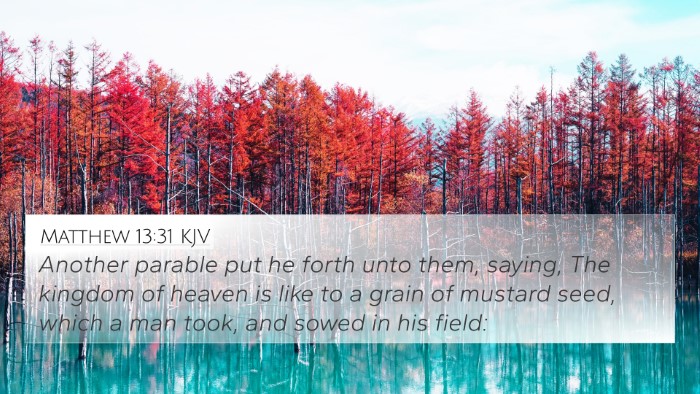 Matthew 13:31 (KJV) »
Matthew 13:31 (KJV) »
Another parable put he forth unto them, saying, The kingdom of heaven is like to a grain of mustard seed, which a man took, and sowed in his field:
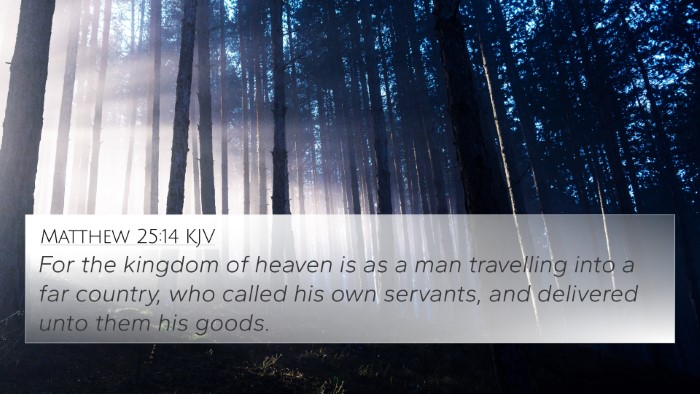 Matthew 25:14 (KJV) »
Matthew 25:14 (KJV) »
For the kingdom of heaven is as a man travelling into a far country, who called his own servants, and delivered unto them his goods.
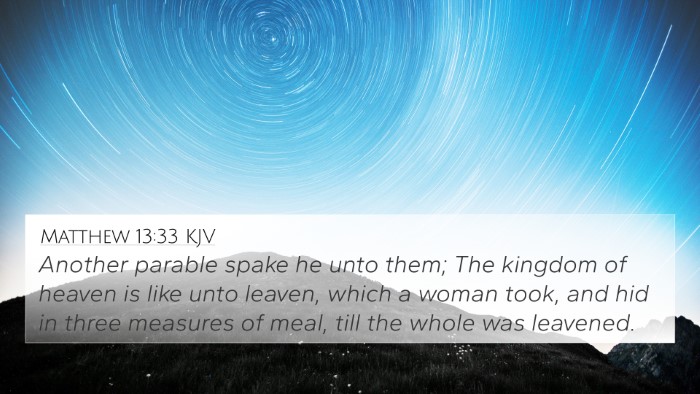 Matthew 13:33 (KJV) »
Matthew 13:33 (KJV) »
Another parable spake he unto them; The kingdom of heaven is like unto leaven, which a woman took, and hid in three measures of meal, till the whole was leavened.
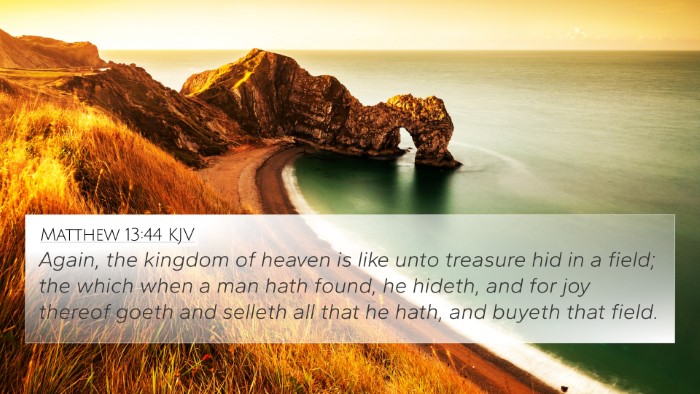 Matthew 13:44 (KJV) »
Matthew 13:44 (KJV) »
Again, the kingdom of heaven is like unto treasure hid in a field; the which when a man hath found, he hideth, and for joy thereof goeth and selleth all that he hath, and buyeth that field.
 Matthew 25:1 (KJV) »
Matthew 25:1 (KJV) »
Then shall the kingdom of heaven be likened unto ten virgins, which took their lamps, and went forth to meet the bridegroom.
 Isaiah 5:1 (KJV) »
Isaiah 5:1 (KJV) »
Now will I sing to my wellbeloved a song of my beloved touching his vineyard. My wellbeloved hath a vineyard in a very fruitful hill:
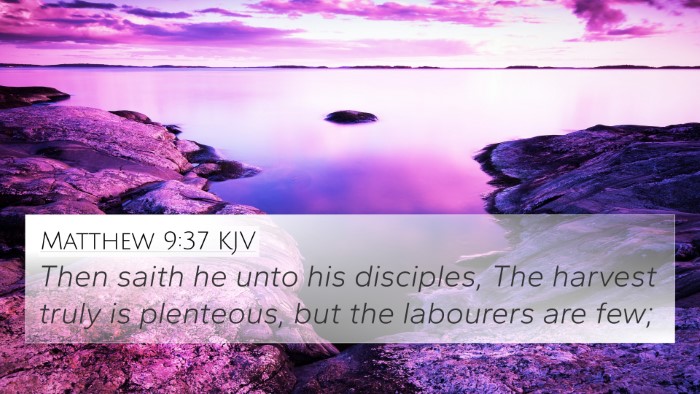 Matthew 9:37 (KJV) »
Matthew 9:37 (KJV) »
Then saith he unto his disciples, The harvest truly is plenteous, but the labourers are few;
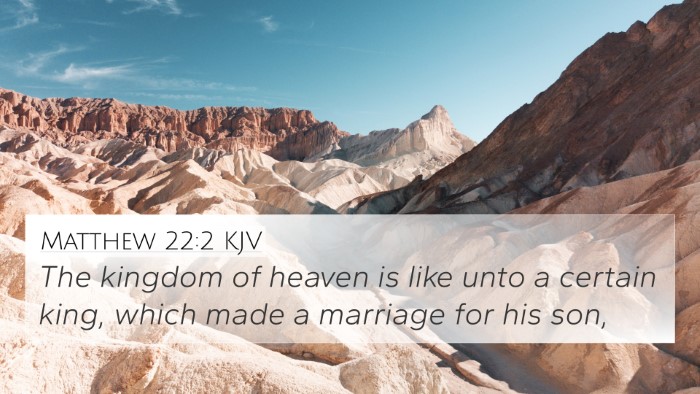 Matthew 22:2 (KJV) »
Matthew 22:2 (KJV) »
The kingdom of heaven is like unto a certain king, which made a marriage for his son,
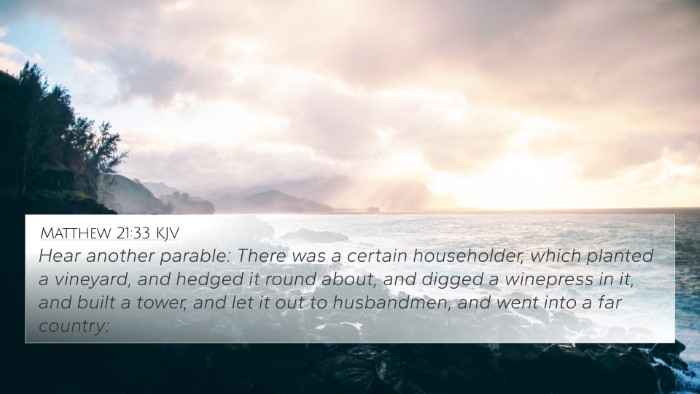 Matthew 21:33 (KJV) »
Matthew 21:33 (KJV) »
Hear another parable: There was a certain householder, which planted a vineyard, and hedged it round about, and digged a winepress in it, and built a tower, and let it out to husbandmen, and went into a far country:
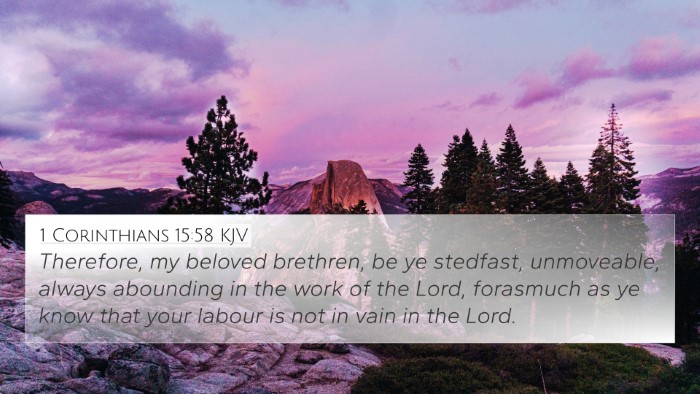 1 Corinthians 15:58 (KJV) »
1 Corinthians 15:58 (KJV) »
Therefore, my beloved brethren, be ye stedfast, unmoveable, always abounding in the work of the Lord, forasmuch as ye know that your labour is not in vain in the Lord.
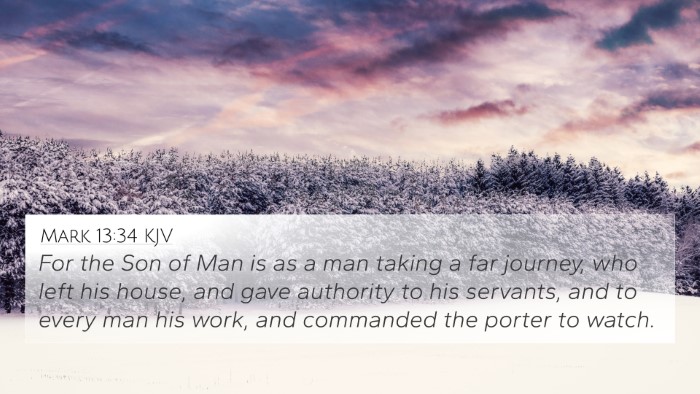 Mark 13:34 (KJV) »
Mark 13:34 (KJV) »
For the Son of Man is as a man taking a far journey, who left his house, and gave authority to his servants, and to every man his work, and commanded the porter to watch.
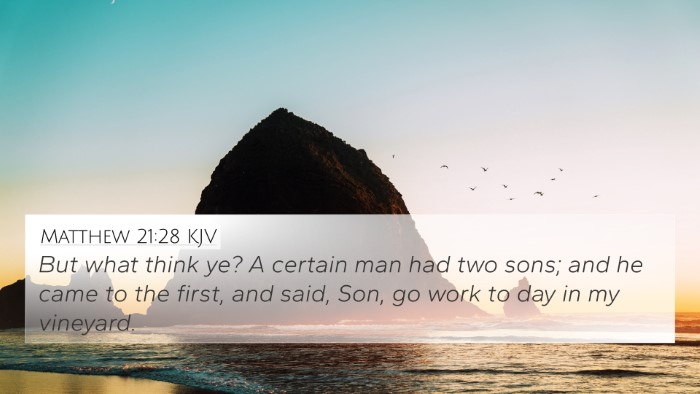 Matthew 21:28 (KJV) »
Matthew 21:28 (KJV) »
But what think ye? A certain man had two sons; and he came to the first, and said, Son, go work to day in my vineyard.
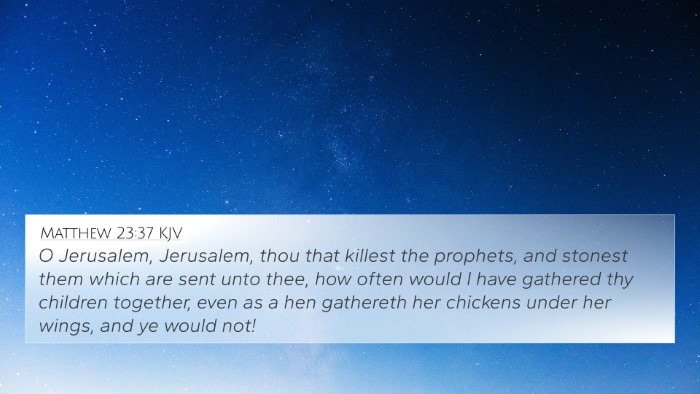 Matthew 23:37 (KJV) »
Matthew 23:37 (KJV) »
O Jerusalem, Jerusalem, thou that killest the prophets, and stonest them which are sent unto thee, how often would I have gathered thy children together, even as a hen gathereth her chickens under her wings, and ye would not!
 2 Peter 1:5 (KJV) »
2 Peter 1:5 (KJV) »
And beside this, giving all diligence, add to your faith virtue; and to virtue knowledge;
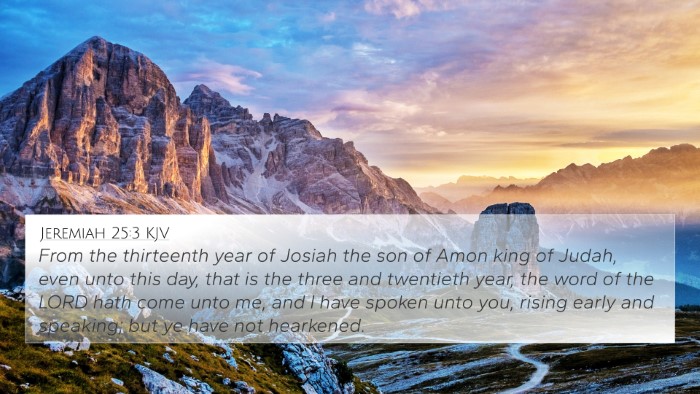 Jeremiah 25:3 (KJV) »
Jeremiah 25:3 (KJV) »
From the thirteenth year of Josiah the son of Amon king of Judah, even unto this day, that is the three and twentieth year, the word of the LORD hath come unto me, and I have spoken unto you, rising early and speaking; but ye have not hearkened.
